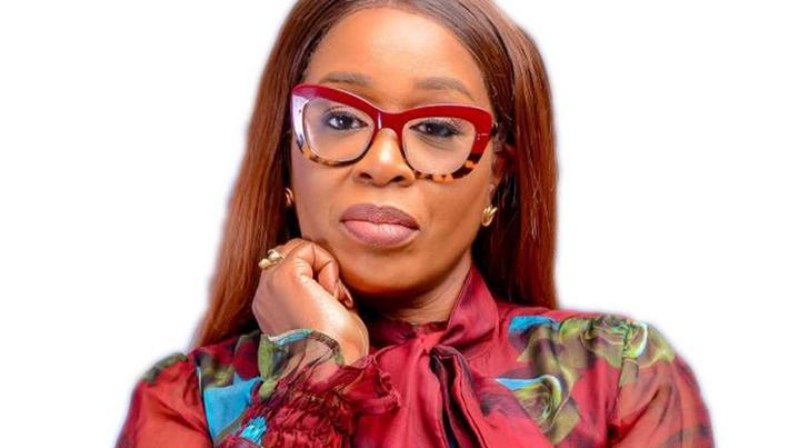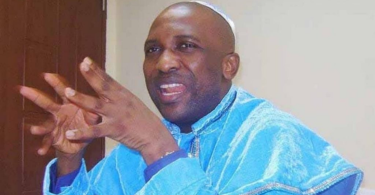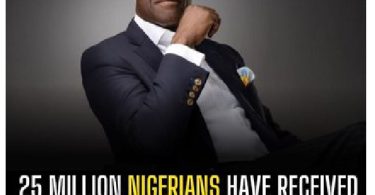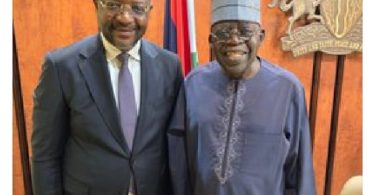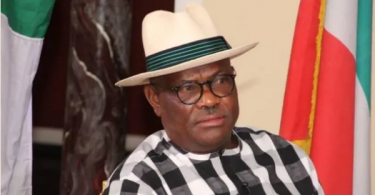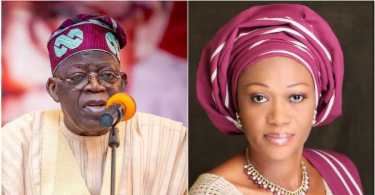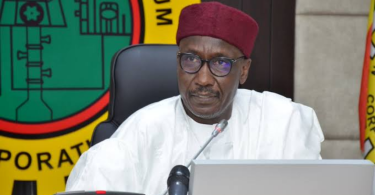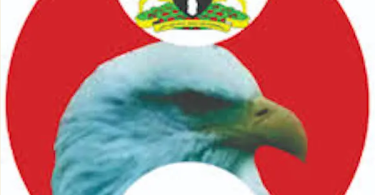I want to empty myself before I die – Fatogbe
Folakemi Fatogbe is a multi-dimensional board level executive with a compelling financial services/ business background and a fascinatingly creative mindset. She is the Chief Executive Officer/Founder, De-Risking Lab, and the Creative Director/ Founder of Oyaato. In the heat of the 2008/2009 global financial crises, she was headhunted into the dual roles of Special Adviser to the Central Bank of Nigeria (CBN) Governor on Banking Reforms and Risk Management as well as Director of Risk Management. She spoke with ENIOLA DANIEL recently at the launch of her emerging fashion brand, Oyaato in Victoria Island, Lagos………CONTINUE READING
Share with us your growing up and your early experiences
I am the first of six children. My father was an estate surveyor and he wanted me to be an architect. My father believed in science and not Art. I started out doing sciences but midway I changed to Art.
I attended St. Louis, Ondo in Ondo State. The school was run by Irish nuns and at a point, we didn’t even have any Nigerian teacher. Then I did a year at the University of Ife, then changed to the University of Ibadan. I am very good in Mathematics, very good with sums, and numbers but not in calculus, I could not stand it. My brain is very logical and analytical. I studied Communication Arts at the University of Ibadan.
Tell us about your journey in the banking sector
When I finished school, I worked at Owena Bank. I worked in the Public Relations department but I realised that if I want a serious experience in the banking sector, I must not stick to only PR. So, I decided to go for an MBA in Finance and International Business at the Business School. From there, I went into banking and started with financial control and corporate strategy.
I did some analyses and made a critical prediction. At that time, Northwest Bank was obsessed with Barclays because they were similar in size and everything. And I told them we should not focus on Barclays but the Scottish bank because they offered great service. They had great returns for their shareholders. My immediate boss was dismissive. The managing director of Corporate Banking, London saw it and invited me upstairs and gave me a special commendation. A few years down the line, I was proven right and it was the Bank of Scotland, one of the small banks that I warned them about.
There is racism whether we like it or not. I encountered racism. I had a boss at the time who asked for a report of my time there. I said I didn’t think it was necessary but if he wanted it he was free to do so. Unknown to him, the person who did the report sent me a copy. So, when it came to bonus and assessment time, I asked to see my file because I was entitled to see it but the report/assessment from group marketing was not there. So, I asked him what happened to the report and he said “don’t you remember that we said we were not going to ask for it?’ I told him, “John you asked for it and I know that you got it because they sent me a copy.’ Then, he said ‘Oh! Really!!’ and he opened his drawer and brought it out. Then I concluded that I was going to leave.
I applied to the Bank of England and had exposure to South Africa, African banks. I was a supervisor and senior risk analyst. It was really fantastic. I had a great time there. From there, I moved to Floyd Financial Markets, Bank of Scotland, and Chase Cooper Consulting as a risk consultant. Then I went to NCI as risk senior industry banking consultant and programme director. I did that and then started doing some work for myself.
I took an entrepreneurial foray when my children were young, did some property development and then the global financial crisis came and it crashed. All my friends that had relocated to Nigeria told me that I needed to move back to Nigeria and that Nigeria needed me. I also noticed that when my father died, my children loved Nigeria. My son was the last person on the dance floor when we came home. So, I agreed to come back home and look for a job.
How did you get into the CBN?
One of my friends from Business School told me that she had seen my CV and people were very interested. Mrs. Folusho Phillips was also helpful. They sent my CV to six banks and four banks called me within 30 minutes that they wanted to see me. Then another good friend told me to consider CBN, but I declined. They said that it had a new governor and that we would get on well, I was given the then CBN governor Lamido Sanusi’s number. When I read his interview in the Financial Times and I saw that his banking was not just about central banking and inflation management but economic development, the realisation actually persuaded me.
I decided to come back to Nigeria to work. I resumed at the CBN in October 2009. Sanusi had appointed me as Special Adviser on Business Reforms And Risk Management. He centralised the risk function and we had a department and a risk management team. We helped to resolve the effect of the global financial crisis. We are very proud of what we have done to date.
The United States called Governor Sanusi to share with them how we were able to do it in Nigeria. Many depositors across the world lost their money, so many things happened and we were able to manage it. I came back to Nigeria to do that and my time at CBN was fantastic. I had a great team. It was a big family.
What was your aspiration when you were young?
I was interested in being Nigeria’s president when I was young. I used to review political party manifestoes and debates. My uncles were in politics. I had two uncles who were gubernatorial candidates in major political parties and they would say, ‘listen to Kemi.’ Then I was in form one, I wasn’t brought up to see and not hear. During the Second Republic, I said I would not be in politics anymore because of what played out between the Unity Party of Nigeria (UPN) and the National Party of Nigeria (NPN).
What are you passionate about?
I am very committed to creating jobs, committed to seeing Nigeria and Africa move forward. I was recently in Kenya, Ghana and Rwanda. What they are doing there is amazing. Rwanda in particular and I say to people that things have to get better. I was in Kenya and I had their chocolate, the same display as European chocolates but tasted better and was cheaper. But would you see Kenyan chocolate on Nigerian shelves? You would not see Kenyan chocolate in Europe.
Africa contributes less than three per cent to global trade but we contribute about 16.7 per cent to the world’s population. What are we doing about this and the African Continental Free Trade Area (AfCFTA)?
African countries should be trading among themselves because there is so much to do. The world has accepted our music and our fashion, they have to accept the rest of us. We are much more creative than the way the world portrays us, than what they are doing in Europe.
We are the poverty capital of the world. I am totally unhappy about that. I like to put my mouth where my money is or put my money where my mouth is. So, right now, I am doing two key things, de-risking because when I was in CBN. We used to help a lot of entrepreneurs. I set up what is called the Chief Risk Officers (CROs) forum of all the banks as the chairperson. I was also chairman, Risk Management Association of Nigeria (RMAN).
How did you get into fashion?
A friend of mine I met when I was 13 would always say to me, ‘don’t you remember when we were in university, you used to design our gown. We are massively impressed.’ The Head of HRM, Jumoke Ogundare is someone that I have known for many years. We were in business school together and she came here and bought about nine outfits and said to me, ‘I know you are a risk management expert, I know that is what you have been doing all your life. But honestly, I feel like your gifting is here.’
How long have you been working on your fashion brand?
When COVID-19 came and the end of tenure, I knew I was going to do my fashion, but I used more of the right side of my brain for that. The left side of the brain is for analysis. I still do that, my consulting, de-risking lab and then the creative side.
I realised that what motivates me is that I want to empty myself before I die. Also, I want to live a life of impact. I want to impact people and create jobs. I want to contribute to humanity. I also visited China and I understand the commercial world. In China, they do not have a global brand as such, they are the manufacturers.
Look at New York Fashion Week and see what is going on. It’s not a big deal anymore, the creativity is in Africa and Nigerians dress well.
At a conference I attended in Kenya recently, the women there were saying that Nigerian women were going to oppress them. When they saw what I was wearing, a black dress, which I now call the Nairobi dress, they wanted to take it off me.
I had a meeting with the guy that designs suits for the Rwandan President. I had an appointment with the person who designs clothes for the Zanzìbian President. My daughter is also quite creative. So, I thought of setting something up and living my passion and dreams. I have done shows in the UK. In Nigeria, we have been to fashion school, we did Africa Fashion Week, London where we were asked to close the catwalk and we did very well.

